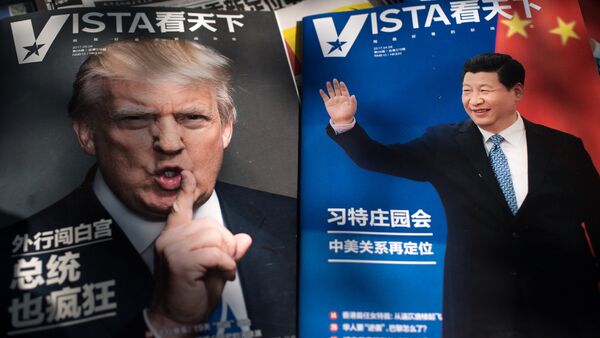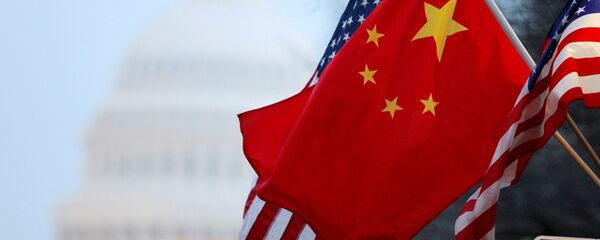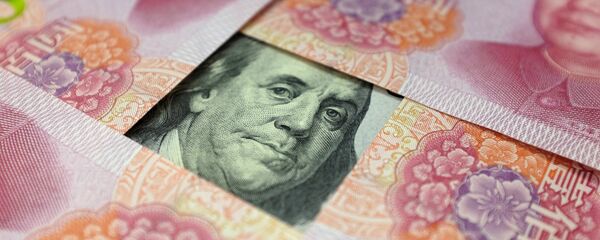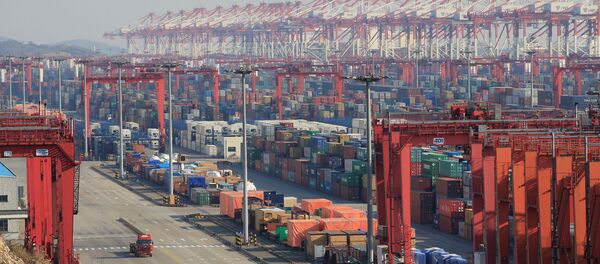Following a hawkish speech in early October accusing China of meddling with US elections, US Vice President Mike Pence stressed on Tuesday that it is up to Beijing to take actions to avoid a cold war with the United States, US media reported.
Infrastructure-Driven Development
Amid growing hostility between Beijing and Washington over issues such as trade frictions and maritime tensions in the South China Sea, what worries US policy makers the most could be China’s growing ambition to "export" its development model, which could be viewed as a serious challenge to the world order dominated by the Western democratic system, Ding Xueliang, director of the Institute for China's Overseas Interests, Shenzhen University, suggested.
"China is not ready to export a complete political system to other counties today. But it’s possible for Beijing to test whether specific policies can work in other countries. Chinese leaders have never told any country that you should copy our system. It’s possible for China to try to export more and more specific policies in the future. When that happens, it could lead to a fundamental conflict with the West," Ding told Sputnik.
READ MORE: US Resumes Discussions With China Amid Trade War Tensions
"Many practices utilized under the BRI are successful policies adapted in China before. For example, a popular policy in China is known as ‘if you want to become rich, you need to build roads first.’ This kind of policy focuses on constructing massive infrastructure projects to pave the way for future economic growth. This domestic Chinese policy is being exported overseas under the BRI," he said.
However, the scholar stressed that China will only be able to export more policies in the future when such policies can be proved to bring economic growth in the recipient countries.
"China first need to prove that such policies can bring success in a number of countries, maybe 70-80 per cent of the recipient countries. We haven’t got there yet. Most of the recipient countries have not been able to duplicate China’s success, while some started to face debt troubles. If the infrastructure projects can become profitable, more and more politicians and social elites in the recipient countries will be attracted by the Chinese model. They’ll be willing to learn more policies from China," he said.
As China continues to face serious domestic economic challenges, it remains to be seen whether Beijing is capable of solving those issues through a unique Chinese model dominated by state-own enterprises, or has to rely on the Western market-oriented system in the end, the expert noted.
No Total Confrontation
After the initial five years of intervention failed to prevent the establishment of the Soviet Union in 1922, Western countries led by the United States and the United Kingdom believed the communist bloc led by Moscow threatened their existence, the expert added.
"The purpose of both sides during the Cold War between the Soviet Union and the United States was to replace each other’s systems through peaceful means. I don’t think Beijing carries the same kind of goal as Moscow did during the Cold War. This is a very important difference," he said.
READ MORE: US Not Seeking New 'Cold War' With China — Pompeo
The expert explained that the Cold War between the USSR and the United States featured rivalry between the two blocs which had fundamental ideological conflicts.
"The two blocs experienced total confrontations driven by ideological conflicts in almost all aspects of life, including political, military, economic and social. The USSR led a group of communist countries, while the United States led what it called the ‘free world.’ Ideology was the key factor dividing these two blocs. Without the ideological conflict, there will not be the kind of ultimate confrontation between the two blocs," he said.
"It’s impossible to form similar blocs today. The kind of partnerships between nations based on common interests is very unstable. It’s more like investing in stocks. When there are benefits, they’ll invest in your stocks. But when the benefits are diminishing, they can easily pull out. The coalition of partially shared interests is highly unreliable. China can only try to find partner counties like this. But they can easily be lured away, if the United States offers more benefits," he said.
The expert explained that countries in ideology-driven blocs could be willing to sacrifice their national interests for the sake of the bloc, while countries in interest-based partnerships are unlikely to make such sacrifices.
Lost Allies
Such policies could make it more difficult for the United States to secure the similar kind of support it received during the Cold War against the USSR, political analysts suggested.
"If the United States wants to confront China, it needs to found more common ground with EU nations and allies like Canada or Japan. But if you look at Trump’s tariffs, there was almost no distinction. I don’t know if the United States is capable of forming a coalition against China globally under Trump’s leadership," Yen Chenshen, a researcher at the Institute of International relations, National Chengchi University in Taiwan, told Sputnik.
READ MORE: Steel Imports From China, Italy Hurt US Economy — US Trade Commission
The scholar suggested that the United States may need a new president to repair relations with its former allies and convince them to join forces to deal with China.
The expert added that close economic ties between China and the United States also mean it’ll take longer time before Beijing and Washington will engage in Cold War-like confrontations.
The views and opinions expressed by the speaker do not necessarily reflect those of Sputnik.







